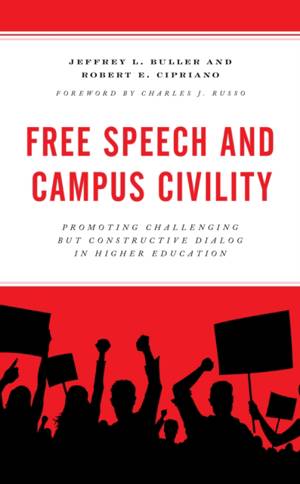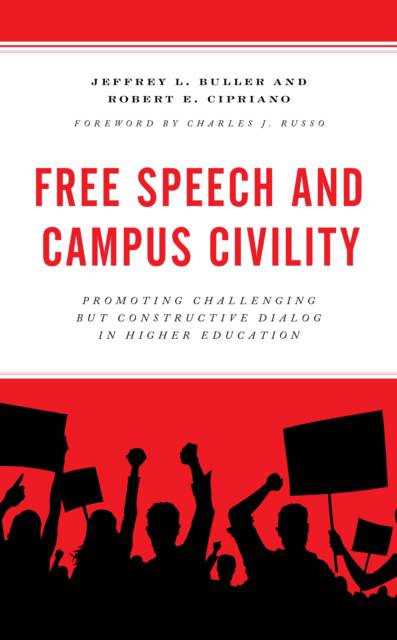
- Afhalen na 1 uur in een winkel met voorraad
- In januari gratis thuislevering in België
- Ruim aanbod met 7 miljoen producten
- Afhalen na 1 uur in een winkel met voorraad
- In januari gratis thuislevering in België
- Ruim aanbod met 7 miljoen producten
Free Speech and Campus Civility
Promoting Challenging but Constructive Dialog in Higher Education
Jeffrey L Buller, Robert E CiprianoOmschrijving
Many colleges and universities are struggling to strike a balance between protecting free speech as a way of supporting their goal of academic freedom and promoting civility as a way of creating an environment where students can learn and faculty members can teach and conduct research. There have been numerous recent incidents of audiences shouting down speakers, burning books, and demanding that specific students be expelled or faculty members be terminated. In this highly fractious environment, schools are wondering "What works?" when seeking to attain the twin goals of permitting unrestricted speech but insisting on rules of decorum for debate and the exchange of perspectives. This book explores what schools have actually attempted, in some cases successfully and in some cases not successfully, to address these issues. It concludes that there are three primary strategies that tend to be effective: treating challenges to free speech and campus civility as "teachable moments"; exploring hypothetical scenarios with students, faculty members, and administrators before there is a serious incident; and approaching free speech and campus civility across the curriculum. The book also surveys United States case law on the topics of free speech, academic freedom, the right to protest, and similar subjects so as to provide faculty members and administrators with a concise resource filled with practical and accurate information.
Specificaties
Betrokkenen
- Auteur(s):
- Uitgeverij:
Inhoud
- Aantal bladzijden:
- 138
- Taal:
- Engels
Eigenschappen
- Productcode (EAN):
- 9781475861341
- Verschijningsdatum:
- 1/06/2021
- Uitvoering:
- Hardcover
- Formaat:
- Genaaid
- Afmetingen:
- 152 mm x 229 mm
- Gewicht:
- 376 g

Alleen bij Standaard Boekhandel
Beoordelingen
We publiceren alleen reviews die voldoen aan de voorwaarden voor reviews. Bekijk onze voorwaarden voor reviews.









